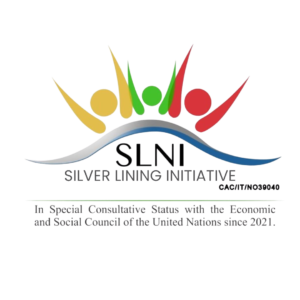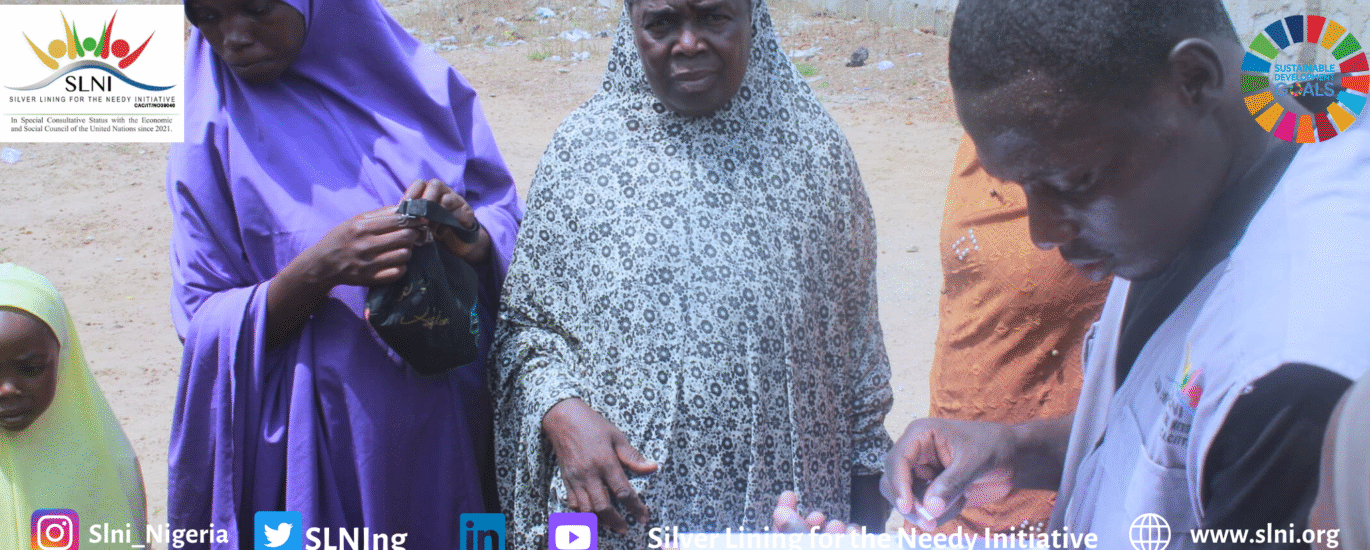Literacy is more than just reading and writing; it’s a gateway to opportunity, health, and a dignified life. In Nigeria, where disparities in access to education and resources persist, organizations like the Silver Lining for the Needy Initiative (SLNI) are making profound impacts by championing inclusive literacy. Through their holistic approach encompassing adult literacy, vocational skills training, and Maternal, Newborn, and Child Health (MNCH) programs, SLNI is not only empowering individuals but also significantly contributing to the achievement of multiple Sustainable Development Goals (SDGs).
This blog post delves into SLNI’s proven models, showcasing how their data-driven interventions are building a more equitable and prosperous Nigeria, one empowered life at a time.
Adult Literacy: Unlocking Potential, Eradicating Poverty (SDG 1 & 4)
Imagine a world where daily tasks like reading a prescription, understanding a business contract, or even helping your child with homework are impossible. For millions of illiterate adults, this is their reality. SLNI’s adult literacy programs are directly tackling this challenge, offering a second chance at education and transforming lives.
Data Story: Fatima’s Journey to Economic Empowerment
Fatima, a 45-year-old mother of five from a rural community, had never been to school. Her inability to read or write severely limited her economic opportunities, keeping her family in a cycle of poverty. Through SLNI’s adult literacy program, Fatima learned to read and write in her local language and basic English. Within six months, she was able to keep simple accounts for her small petty trade business. This new skill, coupled with the confidence gained, allowed her to expand her business, increasing her daily income by 30%. Fatima now proudly helps her children with their schoolwork, a dream she once thought impossible.
Impact on SDGs:
- SDG 1 (No Poverty): By equipping adults with fundamental literacy skills, SLNI enables them to access better economic opportunities, manage finances, and participate more fully in local economies, directly reducing poverty.
- SDG 4 (Quality Education): Adult literacy programs contribute to lifelong learning opportunities for all, ensuring that even those who missed out on formal schooling can acquire essential knowledge and skills.
Vocational Skills Training: Fostering Decent Work & Reducing Inequalities (SDG 8 & 10)
Beyond basic literacy, SLNI recognizes the critical need for practical skills that translate directly into employment and entrepreneurship. Their vocational training programs are tailored to local market demands, providing participants with tangible pathways to self-sufficiency.
Data Story: Halima’s Harvest of Hope and Nutrition
Halima, a young mother in a rural community, struggled to feed her family adequately. Her small plot of land yielded meager harvests due to lack of knowledge about improved farming techniques and access to quality seeds. Through SLNI’s program, integrated with their adult literacy initiatives, Halima learned about climate-resilient farming practices, proper irrigation, and the benefits of diverse cropping. She received training on preparing organic fertilizers and accessing drought-resistant crop varieties.
Within one planting season, Halima’s crop yield increased by an astounding 50%. Her family now enjoys a more varied and nutritious diet, and she has a surplus to sell at the local market, generating a steady income. This newfound food security has not only improved her children’s health but has also empowered Aisha to save for their education, breaking a cycle of poverty and food insecurity for her family.
Impact on SDGs:
- SDG 8 (Decent Work and Economic Growth): Vocational skills training directly addresses unemployment and underemployment by providing marketable skills, fostering entrepreneurship, and promoting productive employment.
- SDG 10 (Reduced Inequalities): By targeting marginalized youth and adults who lack formal qualifications, these programs bridge skill gaps and create equitable opportunities, reducing social and economic inequalities.
Maternal, Newborn, and Child Health (MNCH): Healthy Lives, Gender Equality (SDG 3 & 5)
Literacy and health are intrinsically linked. SLNI’s MNCH programs integrate health education with literacy, empowering women with the knowledge to make informed decisions about their health and their children’s well-being.
Data Story: Aisha’s Informed Choices for a Healthier Family
Aisha, a pregnant woman attending SLNI’s community-based MNCH sessions, learned about the importance of antenatal care, safe delivery practices, and childhood immunizations. Crucially, the health information was delivered in a simple, accessible format, often incorporating visual aids and interactive discussions, alongside basic literacy lessons. Before, Aisha relied solely on traditional practices; now, armed with knowledge and the ability to understand health pamphlets, she actively participates in her healthcare decisions. Her last child was born safely in a health facility, and she diligently follows the immunization schedule, leading to a healthier start for her baby and a confident, empowered mother.
Impact on SDGs:
- SDG 3 (Good Health and Well-being): By improving maternal health outcomes, reducing child mortality, and promoting healthy lifestyles, SLNI contributes directly to ensuring healthy lives and promoting well-being for all ages.
- SDG 5 (Gender Equality): Empowering women with health knowledge and decision-making capabilities is fundamental to achieving gender equality. When women are healthy and informed, they can participate more fully in their families and communities.
Building a Sustainable Future: Collaboration and Climate Action (SDG 13 & 17)
SLNI’s work doesn’t stop at individual empowerment. The ripple effect of inclusive literacy and skills training extends to broader societal issues, including climate change awareness and fostering strong partnerships.
- SDG 13 (Climate Action): Through literacy programs, SLNI can integrate education on environmental sustainability, climate change adaptation, and responsible resource management. Literate communities are better equipped to understand and implement climate-resilient practices, from sustainable agriculture to disaster preparedness.
- SDG 17 (Partnerships for the Goals): SLNI exemplifies the power of collaboration. Their success is built on strong partnerships with local communities, government agencies, international NGOs, and donors. These multi-stakeholder collaborations are essential for scaling impact, sharing best practices, and achieving the ambitious targets of the SDGs.
The Way Forward
SLNI’s journey demonstrates that inclusive literacy is not merely an educational endeavor; it is a powerful catalyst for sustainable development. By investing in adult literacy, vocational skills, and maternal and child health, SLNI is building a foundation for a future where every Nigerian has the opportunity to thrive, contribute to their community, and participate in building a more just and sustainable world.
Join us in amplifying this impact! Learn more about SLNI’s programs and how you can support their vital work.

